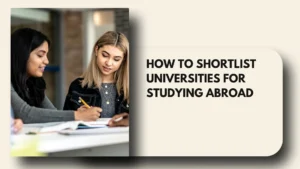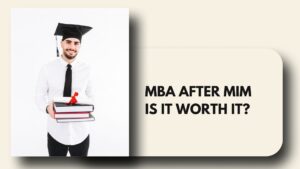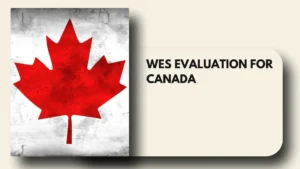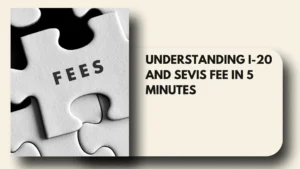- Most countries accept 1-2 years gap for undergraduate programmes and up to 5 years for postgraduate courses with proper justification.
- Visa officers want to verify three things: genuine reasons for study gap, productive use of gap time, and your current readiness for studies.
- Some countries, such as Australia, enforce strict limits on undergraduate study gaps, permitting only up to 1 year with valid justification.
- What Is a Study Gap and Why It Matters in Visa Interviews
- Common Reasons for Study Gaps Accepted by Visa Officers
- How Visa Officers View Study Gaps: What They Really Want to Know
- Step-by-Step Guide to Explaining Your Study Gap in Visa Interview
- Study Gap Acceptance Criteria by Popular Study Destinations
- Tips to Strengthen Your Study Gap Explanation
- Key Takeaways
- FAQs

A study gap doesn’t have to be a roadblock in your visa journey. Many students take breaks between their academic years, and visa officers understand this reality. What they really want to see is honesty, clarity, and how you used that time to grow.
Studying abroad opens doors to world-class education systems, diverse cultural experiences, and career opportunities that extend far beyond borders. Popular countries like the USA, UK, Canada, Australia, Germany and others, continue to welcome international students, with post-study work options and pathways that help graduates build international experience and global professional networks.
What Is a Study Gap and Why It Matters in Visa Interviews
A study gap is any period when you were not enrolled in formal education. This could be a few months or several years between your school and undergraduate studies, or between your bachelor’s and master’s programmes.
Visa officers ask about study gaps because they want to understand your academic commitment and assess your readiness for the programme you’ve applied to. They’re not trying to reject you, but trying to understand your story. A well-explained gap can actually strengthen your application if you frame it correctly.
Common Reasons for Study Gaps Accepted by Visa Officers
Students take breaks from academics for different reasons, and most of them are perfectly acceptable. What matters is how you present them during your interview or in your Letter of Explanation.
Here are some widely accepted reasons that visa officers understand:
Health-Related Issues
Medical conditions, surgeries, or recovery periods that required you to pause your studies temporarily.
Family Responsibilities
Taking care of ill family members, managing family business during emergencies, or supporting your household during difficult times.
Financial Constraints
Saving money through work to fund your education or waiting for scholarship results and funding opportunities.
Career Exploration
Working in your field of interest to gain clarity about your future academic and professional direction before committing to higher studies.
Competitive Exam Preparation
Preparing for entrance exams, language proficiency tests like IELTS or TOEFL, or professional certification courses that required focused time and attention.
Personal Development
Volunteering, internships, online courses, skill-building programmes, or travel experiences that contributed to your personal growth and academic goals.
The important thing is to connect your gap period to your future plans and show that it wasn’t wasted time.
How Visa Officers View Study Gaps: What They Really Want to Know
Visa officers are trained to look beyond the gap itself. They want to understand three main things about your situation.
- First, they want to know if your reasons are genuine and whether you’re being honest about what happened during that period.
- Second, they assess whether you were productive and examine any potentially hidden factors, including a second bachelor’s degree or prolonged inactivity.
- Third, they want to see if you’re now focused and ready to commit to your studies abroad without any lingering issues that might affect your academic performance.
Universities typically accept 1–2 years of gap for undergraduate programmes and up to 5 years for postgraduate courses. Fields like MBA and business accept longer gaps when supported by relevant professional work experience.
Step-by-Step Guide to Explaining Your Study Gap in Visa Interview
Walking into a visa interview with a study gap can feel intimidating, but preparation changes everything. Your explanation needs to be structured, confident, and backed by supporting documents.
Be Honest and Direct
Don’t try to hide your gap or make up stories. Visa officers can spot inconsistencies quickly, and dishonesty is one of the fastest ways to get your visa rejected. State your reason clearly and briefly. If it was for health reasons, say so. If you worked to save money, explain that. Honesty builds credibility, and credibility is what gets visas approved.
Show What You Gained
Even if your gap wasn’t planned, focus on what you learned or achieved during that time. If you worked, mention the skills you developed. If you prepared for exams, talk about how it helped you become more focused. If you dealt with personal issues, explain how it gave you maturity and perspective. Turning a setback into a learning experience shows growth, and that’s exactly what visa officers want to see.
Connect It to Your Future Plans
Your gap should make sense within your larger academic and career story. Explain how the time off helped you clarify your goals or prepared you for the programme you’re applying to. For example, if you worked in a relevant field, show how that experience motivated you to pursue higher studies. If you took time to care for family, explain how that responsibility made you more determined to build a stable future through education.
Keep Your Answer Short and Structured
Don’t ramble or over-explain. A good answer takes about 30 to 45 seconds. State the reason, mention what you did during the gap, and connect it to your current application. Practice this explanation until it feels natural and confident. Visa interviews are short, and officers appreciate students who can communicate clearly without unnecessary details.
Prepare Supporting Documents
Words alone aren’t always enough. If you worked, bring employment letters or payslips. If you are ill, carry medical documents. If you prepared for exams, show your test scores or admission letters. These documents back up your story and remove any doubt the officer might have. Always carry physical copies and keep digital versions ready as well.
Study Gap Acceptance Criteria by Popular Study Destinations
Different countries have varying levels of flexibility when it comes to study gaps. Understanding these differences helps you set realistic expectations and prepare accordingly.
| Country | Acceptable Gap for Undergraduate | Acceptable Gap for Postgraduate |
|---|---|---|
| USA | Up to 1 year widely accepted; 1–2 years with explanation | Up to 5 years with work experience or valid reasons |
| UK | Up to 2 years | Up to 5 years |
| Canada | Up to 2 years with proper justification | Up to 5 years with career relevance |
| Australia | Up to 6 months with justification | Up to 1 year with justification |
| Germany | Up to 2 years acceptable | Up to 5 years with relevant work history |
Tips to Strengthen Your Study Gap Explanation
Beyond the basics, there are specific strategies that can make your explanation more compelling and increase your chances of visa approval.
Build a Timeline Document
Create a month-by-month breakdown of your gap period showing exactly what you did during each phase. This level of detail removes ambiguity and shows you were productive. Include dates, activities, skills gained, and supporting documents for each phase.
Get Professional References
If you worked during your gap, get a detailed reference letter from your employer that mentions your role, responsibilities, skills developed, and your professional conduct. These third-party validations add credibility to your claims.
Show Continued Academic Interest
Even during breaks, staying connected to your field through online courses, workshops, webinars, or reading demonstrates sustained academic interest. Certificate courses from recognised platforms strengthen your case significantly.
Address Red Flags Proactively
If your gap raises obvious concerns like multiple breaks or very long gaps, address them directly in your LOE without waiting for the visa officer to ask. Taking initiative shows confidence and transparency.
Practice Your Interview Responses
Write out your answers to gap-related questions and practice them until they sound natural, not rehearsed. Record yourself or practice with someone who can give honest feedback about your tone and body language.
Key Takeaways
A study gap is not a barrier, it’s part of your unique journey. What matters is how you present it. Thousands of students with academic breaks successfully obtain visas each year by being honest, prepared, and strategic in their explanations.
Your gap might have been challenging, but it’s also made you more mature, focused, and ready for the academic and personal growth that studying abroad brings. Own your story, prepare your documentation thoroughly, and walk into that visa interview knowing you’ve done everything possible to present your case effectively.
Ready to Take the Next Step?
Pursuing higher education abroad is a strategic decision that requires careful planning and expert guidance. At AdmitX, our experienced counsellors have successfully guided thousands of Indian students through complex visa applications, including those with study gaps.
We provide support across every stage of your study-abroad journey:
- University Selection Guidance
- SOP Review
- Study-Abroad Document Templates
- Free IELTS Bootcamp Course
- Scholarship Assistance
- Visa Support Services
And much more!
Book your FREE study abroad counselling session with our experts today!
FAQs
Can I apply for a student visa if my study gap exceeds 10 years?
Possible but challenging; requires exceptional justification, substantial professional achievements, and strong career progression linking work to your programme.
How does a study gap affect scholarship eligibility for international students?
Gaps don’t automatically disqualify you; many universities offer mature student schemes, and work experience can strengthen certain scholarship applications.
Will multiple short study gaps be viewed more negatively than one long gap?
Yes, multiple gaps suggest inconsistency; each requires individual justification with supporting documents to demonstrate resolved circumstances.
Do I need to explain a 6-month gap between completing my degree and starting my master's?
Yes, in countries like Australia, you need to justify a 6-month gap, but in most others, it’s considered a normal transition period for applications and visa processing.
Can taking a gap year for travel be considered a valid reason for student visa purposes?
Yes, when framed as cultural immersion, volunteering, or language learning with evidence connecting experiences to academic goals.
How should I explain a study gap caused by visa rejection from another country?
Be transparent, explain what went wrong, detail corrective measures taken, and provide evidence of resolved issues.
Are study gaps viewed differently for STEM subjects versus humanities programmes?
Yes, STEM prefers shorter gaps due to technical currency, whilst humanities and business accept longer gaps with relevant experience.
Should I mention mental health issues as a reason for my study gap?
Yes, if relevant; focus on recovery completion, current wellness, and medical clearance confirming fitness for studies.
Can I combine multiple reasons in my study gap explanation or should I state one primary cause?
State one primary reason with others as contextual factors, ensuring they complement rather than contradict each other.
How far back do visa officers scrutinise study gaps in my educational history?
Primarily within the past 10 years, with greatest focus on recent gaps; older gaps receive minimal scrutiny unless part of a pattern.
If you are an aspirant looking to study at your dream university, book an appointment with AdmitX today and start your applications early to avail yourself of all the benefits.















